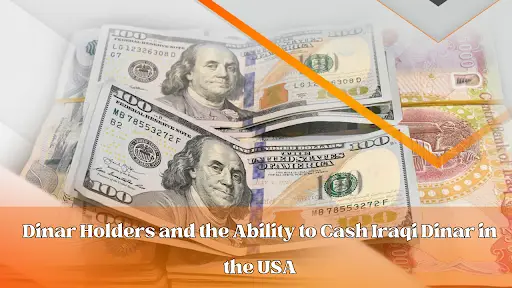
The Iraqi dinar (IQD) has long been a subject of interest for currency investors and collectors, particularly due to speculation about its potential revaluation. Many individuals hold dinar with hopes of future gains, but one of the biggest challenges remains converting it into U.S. dollars. While the U.S. financial system facilitates the exchange of many foreign currencies, the Iraqi dinar is not as widely accepted as major international currencies. Those looking to cash out their dinar holdings must understand a complex landscape of banking policies, currency exchange regulations, and potential risks associated with this currency.
If you are looking to exchange Iraqi Dinar (IQD) in the United States, your options are relatively limited. Unlike more commonly traded currencies such as the Euro or British Pound, the Iraqi Dinar is not widely accepted at major banks or financial institutions. However, there are a few alternatives where you might be able to exchange IQD for U.S. dollars.
Exchanging foreign currency can be straightforward in many cases, but the Iraqi dinar presents unique challenges that make it difficult for holders to cash out in the U.S. Some of these challenges include:
Most U.S. banks have policies that exclude the Iraqi dinar from their list of exchangeable currencies. This means that traditional financial institutions generally do not provide over-the-counter exchange services for IQD. However, here are some key considerations:
Cashing in Iraqi dinar in the U.S. remains a complicated process due to limited acceptance by banks, regulatory challenges, and concerns over counterfeiting. While some foreign exchange dealers and private buyers may facilitate transactions, holders must exercise caution and verify the legitimacy of any exchange service. Those unable to cash out their dinar may consider alternative options such as selling to collectors or waiting for potential changes in currency policies.
Given the uncertainty surrounding the dinar’s future value, it is important to stay informed about financial and regulatory developments to make the best decision regarding your holdings.
End

Id quam fames at eget pede. Mauris tellus hac pellentesque tincidunt vestibulum.